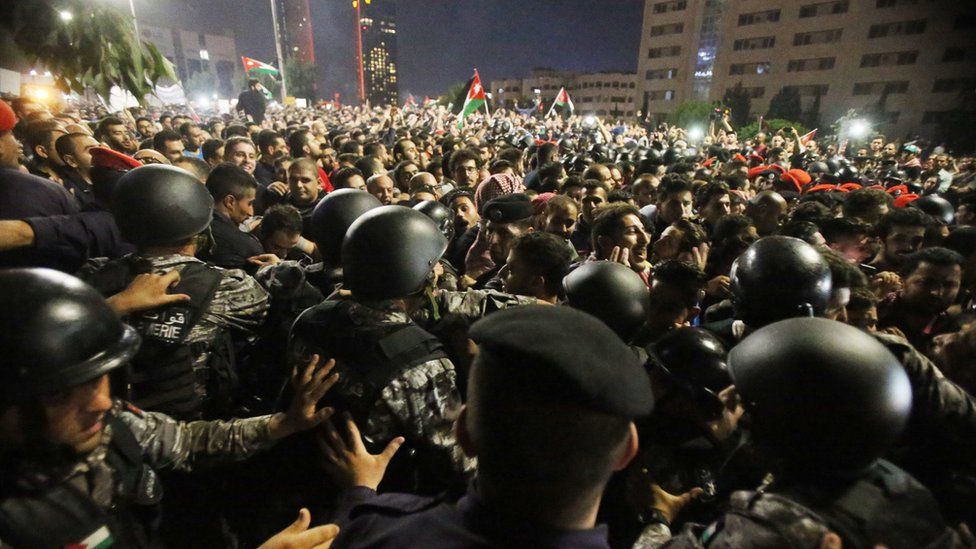Riots Break Out in Jordan
Demonstrations tied to the dire economic situation in the kingdom and spiraling fuel prices.

In recent days, violent demonstrations in the Kingdom of Jordan have been expanding, leading to, among other things, fatalities in the security forces. Escalating fuel prices have triggered the current spate of violence.
There is no doubt that the Kingdom of Jordan has been going through a severe economic crisis for many years, worsening annually. There are multiple reasons. So far the most important have been:
- The prolonged presence of hundreds of thousands of refugees in Jordan due to the civil war in neighboring Syria
- The Corona crisis and all it entailed
- Unemployment which recently reached 23%
- Corruption
And now the war in Ukraine has only made matters worse, causing price increases all over the world including Jordan.
Jordan’s external debt was close to 42 billion dollars in 2020 due to an increase of 4 billion dollars over the previous two years.
In light of all the above, the Jordanian Ministry of Finance realized that they must carry out reforms to prevent a total economic collapse of the country.
The reforms included eliminating subsidies and raising the price of fuel and some essential products – and these were announced.
In response, truck and taxi drivers went on strike and demonstrated in the streets of the kingdom. Many Jordanians joined them. They burned tires and blocked roads. The Jordanian government opened an emergency command center to monitor and deal with the crisis, and a decision was taken to expand the Jordanian army’s forces in the south of the kingdom to prevent further demonstrations.
Many Jordanian citizens circulated videos of the riots that broke out in the south and in the region of the capital on social media. Hundreds of young people were seen in different districts burning tires and calling for the overthrow of the Jordanian regime.
The riots climaxed Friday, when one of the patrols sent to suppress the protesters came under fire. Jordanian TV officially reported the death of Ma’an’s deputy police chief, Lt. Col. Dr. Abdel-Razzaq Al-Dalba, killed while performing his official duties in Ma’an. Another two security personnel were wounded by gunfire in the Hosniyeh area while dealing with the riots there.
As of this writing, it is not clear who killed the police officer. The family of the deceased asked not to receive government visitors until the culprit had been arrested. However, King Abdullah did visit the family and promised to capture the murderer. He ordered the army to expand its efforts in the south of the country and work to bring the killer to justice.
In response to violent incidents, the Jordanian government announced that it had taken steps to block some social media countrywide:
“The government has decided to impose a temporary ban on the use of the social network Tiktok, following many videos from the protests that were uploaded to it… due to Tiktok’s failure to deal with publications that incite violence and disorder.”
Yesterday there were disruptions in the Internet in Ma’an and the city of Kerak, where demonstrations also broke out.
In the last two days, there have been a few additional incidents. Many districts (among them the Kerak District) saw citizens announcing a general strike and resistance on Monday.
It is estimated that the demonstrations will continue.
During events of this kind in the past, the king has responded by dismissing a number of government ministers, laying the blame for the unrest at their door.
It is anticipated that Abdullah will play this same “trick” again, and onlookers wonder, if he does, whether the multitudes will “swallow the frog”.
Or, some wonder, will the king really do what is necessary this time to carry out the reforms Jordan so badly needs?
No comments:
Post a Comment